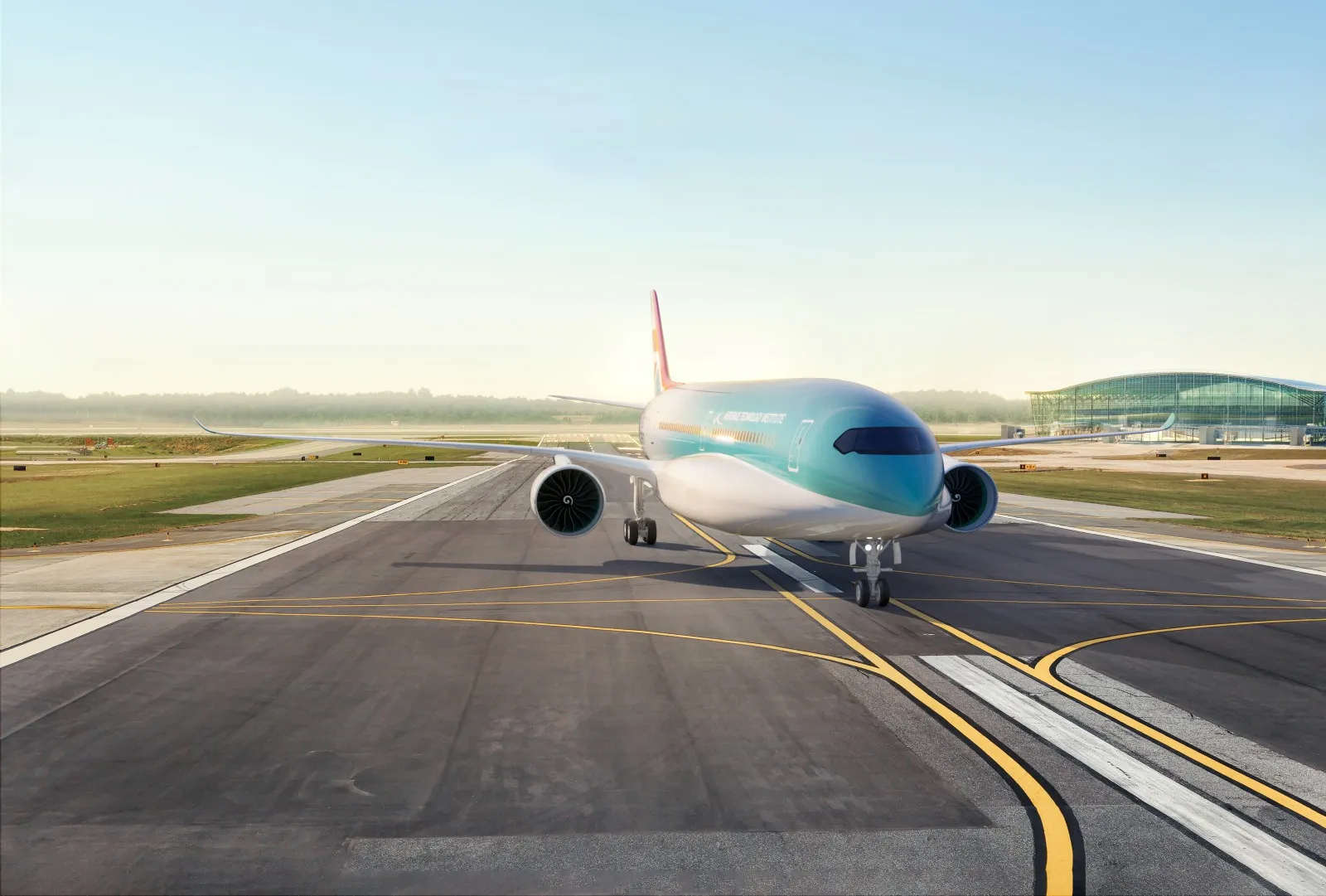
easyjet backs FlyZero aircraft to power its future
Dec 07, 2021

EasyJet has expressed its support for the FlyZero project, an initiative aimed at developing hydrogen-powered aircraft. This innovative approach aligns with the airline's commitment to sustainability and reducing its carbon footprint. By backing FlyZero, EasyJet is actively participating in the exploration of alternative fuel solutions that could revolutionize air travel. The airline believes that hydrogen technology represents a significant opportunity to achieve net-zero emissions in the aviation sector. EasyJet's involvement underscores its dedication to leading the way in environmentally friendly travel, positioning itself at the forefront of the industry's shift towards sustainable operations.
EasyJet has recently taken a significant step towards a more sustainable future by backing the development of the FlyZero aircraft. This innovative project, spearheaded by the UK government and the Aerospace Technology Institute, aims to create a zero-emission passenger aircraft that could revolutionize air travel. EasyJet's involvement underscores its commitment to reducing carbon emissions and leading the way in eco-friendly aviation solutions.
The Vision Behind FlyZero
The FlyZero project envisions a hydrogen-powered aircraft capable of carrying up to 279 passengers over a distance of 2,000 nautical miles. This ambitious design aims to address the pressing challenge of climate change by significantly reducing the aviation industry's carbon footprint. EasyJet recognizes that innovations like FlyZero are essential to achieving net-zero carbon emissions by 2050.
Key Features of FlyZero
One of the most notable features of the FlyZero aircraft is its use of hydrogen as a primary fuel source. This approach not only reduces greenhouse gas emissions but also minimizes noise pollution, making air travel more environmentally friendly. Below is a table highlighting the key features of the FlyZero project:
| Feature | Description |
|---|---|
| Fuel Type | Hydrogen |
| Passenger Capacity | Up to 279 passengers |
| Range | 2,000 nautical miles |
| Environmental Impact | Zero emissions during flight |
EasyJet's Commitment to Sustainability
EasyJet has long been a leader in promoting sustainable aviation practices. The airline has implemented several initiatives to reduce its carbon footprint, such as investing in fuel-efficient aircraft and optimizing flight routes. By backing the FlyZero project, EasyJet reinforces its dedication to sustainability and positions itself at the forefront of the aviation industry's transition to greener technologies.
The Future of Air Travel
The aviation industry is at a crossroads, with increasing pressure to reduce emissions and adopt sustainable practices. The FlyZero aircraft represents a promising solution to this challenge. EasyJet’s support for this project aligns with global efforts to decarbonize air travel. As governments and industry stakeholders recognize the urgency of addressing climate change, initiatives like FlyZero are essential for a sustainable future.
Challenges Ahead
While the vision for the FlyZero aircraft is exciting, several challenges remain. Developing hydrogen infrastructure, ensuring safety standards, and achieving regulatory approval are significant hurdles that must be overcome. However, with the backing of key players like EasyJet, the project has the potential to address these challenges effectively.
Collaboration in the Aviation Sector
The success of the FlyZero project will require collaboration among various stakeholders, including airlines, manufacturers, and governments. EasyJet's involvement is a testament to the importance of partnership in driving innovation within the aviation sector. By working together, these entities can share knowledge, resources, and expertise to bring the FlyZero aircraft to fruition.
The Economic Impact of FlyZero
Investing in sustainable aviation technologies like the FlyZero aircraft can have significant economic benefits. It can create jobs, stimulate growth in the aerospace sector, and enhance the competitiveness of the UK’s aviation industry. EasyJet's support for this initiative reflects a broader understanding of the economic implications of transitioning to greener technologies.
Consumer Expectations
As environmental concerns continue to rise, consumers are increasingly expecting airlines to take action towards sustainability. EasyJet's backing of the FlyZero aircraft could enhance its brand image and attract eco-conscious travelers. By prioritizing sustainable practices, EasyJet can differentiate itself from competitors and establish itself as a leader in responsible air travel.
The Path Forward
Looking ahead, EasyJet's commitment to the FlyZero project is an exciting development in the quest for sustainable aviation. The timeline for the aircraft's development and eventual launch will depend on overcoming various technological and regulatory challenges. However, the backing of EasyJet provides a strong foundation for the success of this transformative initiative.
In conclusion, EasyJet's support for the FlyZero aircraft signifies a pivotal moment in the aviation industry’s journey towards sustainability. With its commitment to reducing carbon emissions and pioneering eco-friendly technologies, EasyJet is not only enhancing its operational practices but also setting an industry standard for future developments. The FlyZero project embodies a hopeful vision for the future of air travel, where sustainability and technology go hand in hand to create a greener planet.
Related Articles

Explore Thailand: The Best Islands to Visit for Paradise, Adventure, and Relaxation

The Ultimate Guide to the Best Islands in Thailand for Your Next Getaway

Do babies need passports? How to get a passport for a newborn

How to get a U.S. passport fast: here’s how to expedite the process

What is Mobile Passport Control: 5 reasons why you should use it

SENTRI vs. Global Entry: A detailed guide

Do you need a passport to go to the Bahamas? Let’s find out

Do you need a passport to go to Mexico? A detailed guide

Do you need a passport to go to Canada? We got the answer

Do You Need a Passport for a Cruise: An Essential Travel Guide

Booster Seat Requirements: All the Rules to Follow in Your Rental Car

What Are the World’s Most Powerful Passports, and How Does Yours Rank?

How to Take a Passport Photo at Home: A Helpful Guide

You've got to have heart! Southwest's new livery

Your opinion: Should water be free on low cost carriers?

Young women bolder than guys as solo travellers
